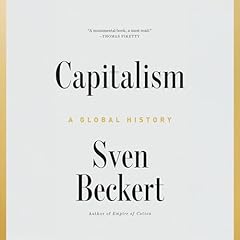
After Tamerlane
The Global History of Empire Since 1405
No se pudo agregar al carrito
Add to Cart failed.
Error al Agregar a Lista de Deseos.
Error al eliminar de la lista de deseos.
Error al añadir a tu biblioteca
Error al seguir el podcast
Error al dejar de seguir el podcast
 Exclusivo para miembros Prime: ¿Nuevo en Audible? Obtén 2 audiolibros gratis con tu prueba.
Exclusivo para miembros Prime: ¿Nuevo en Audible? Obtén 2 audiolibros gratis con tu prueba.Compra ahora por $30.76
-
Narrado por:
-
Peter Johnson
-
De:
-
John Darwin
Tamerlane, the Ottomans, the Mughals, the Manchus, the British, the Japanese, the Nazis, and the Soviets: All built empires meant to last forever; all were to fail. But, as John Darwin shows in this magisterial book, their empire-building created the world we know today.
From the death of Tamerlane in 1405, to America's rise to world "hyperpower," to the resurgence of China and India as global economic powers, After Tamerlane is a grand historical narrative that offers a new perspective on the past, present, and future of empires.
©2008 John Darwin (P)2013 Audible, Inc.Los oyentes también disfrutaron:




















Las personas que vieron esto también vieron:






Comprehensive Single Volume
Se ha producido un error. Vuelve a intentarlo dentro de unos minutos.
Wow. Impressive width and deep analysis combine
Se ha producido un error. Vuelve a intentarlo dentro de unos minutos.
He is too well read and researched to have missed these things. He is willfully choosing to downplay the dynamism, love of science, and unique military and economic prowess of the West. This book is such a missed opportunity. To read it with an uncritical eye is to assume from Egypt to India to Japan thriving advanced societies moved forward very similar to Europeans until very late in history. Then magically, mostly through dumb luck, slavery, good geography, and population dynamics the West took off in the 1800s. Nothing could be further from the truth. What a travesty for such an intelligent author to so widely misunderstand the importance of Christianity laying the foundations for the scientific method and human rights.
Wildly deceptive propaganda.
Se ha producido un error. Vuelve a intentarlo dentro de unos minutos.


